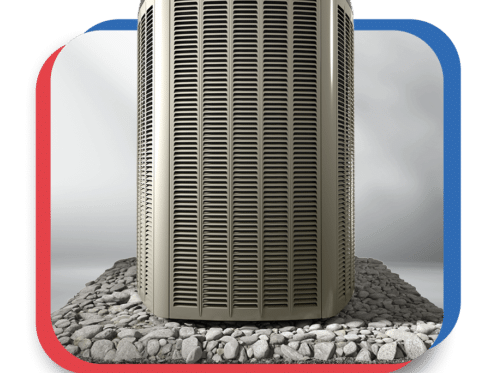As you shop for a new air conditioner you have likely run across the term “BTU.” While it’s not a term that a lot of people are familiar with, it is a critical rating for an AC unit. So what does BTU actually mean, why does it matter, and how do you know how many you need?
British Thermal Unit Basics
The BTU is simply the measure of the amount of energy needed to heat one pound of water by one degree Fahrenheit. But your air conditioner cools your air, not heat water, so what does this tell you? At a very basic level, air conditioning is simply a transfer of heat. Your system absorbs heat from within your house and then vents it to the air outside.
The BTU rating is a measure of how much cooling capacity a unit has. A unit with 36,000 BTUs can transfer enough heat to warm 36,000 pounds of water by 1 degree every hour. This rating is based on the unit operating at peak capacity and efficiency.
As you look at your various options, you may also see the capacity presented in tons. This is simply another version of the BTU rating. One ton of cooling capacity is equal to 12,000 BTUs.
Why Do BTUs Matter?
Thinking about the cooling capacity, it would seem that the bigger the unit, the better it would cool your home. However, this is an oversimplified perspective on how an air conditioner works.
First, keep in mind that costs are directly related to cooling capacity, so more BTUs means that you pay for it up front. Next, the more BTUs the system offers, the more energy the system consumes when it runs, further raising your costs.
Keep in mind that a higher BTU rating on your air conditioning unit does not affect the capacity of your HVAC system. Your system can only circulate so much air per hour based on your ductwork and air handler. If your air conditioner is oversized compared to the rest of your system, you get little benefit from more capacity.
On the other side of the spectrum, going too small on your cooling capacity also costs more. With too little cooling capacity, your system will have longer run cycles, raising your energy consumption. Longer run cycles also add more strain and wear on your system, resulting in additional repairs and a shorter service life.
Understanding How Much You Need
As you can see, finding the right size system for your home is important. There is a simple way to determine roughly the size of air conditioner you need.
Start with the square footage of your home, including all serviceable areas. Keep in mind that not all of these areas may be captured in your livable space calculation. For instance, if your garage, attic, or basement has vents, you need to include those spaces.
Once you have that number, multiply it by 20 BTUs per square foot. So if your serviceable area is 2,500 square feet, you start with a rating of 50,000 BTUs for your home.
From there, you need to consider the variables affecting your home’s AC function. The measurement of 20 BTUs per square foot is based on an occupancy of two people. For every additional occupant, you should increase your estimate by 600 BTUs.
Further, if your home is shaded most of the day, you can decrease your need by about 10%. If your home has no shade, increase your estimate by about the same amount.
Other variables include your ceiling height, how many windows you have, and more. An experienced HVAC professional will help you determine the right size for your situation.
BTUs and Comfort
Your air conditioner not only cools the air moving through the system but also removes some of the humidity. This is part of why your home is so comfortable when it is muggy outside.
When your air conditioner is oversized, you typically have shorter cycle lengths. This means the system does not run long enough to pull the humidity from the air, and you are getting less comfort from a system you are paying more to run.
People around Richmond, Kentucky, have turned to Affordable Service Solutions Heating & Air Conditioning for help selecting the right air conditioner since 2012. Our team also offers expert heating, air conditioning, and furnace maintenance and repairs. Call to schedule your new air conditioning consultation with one of our experienced technicians today.
Services We Offer include:

